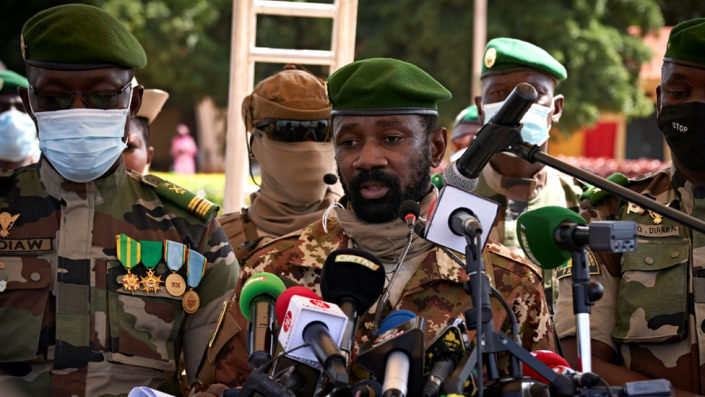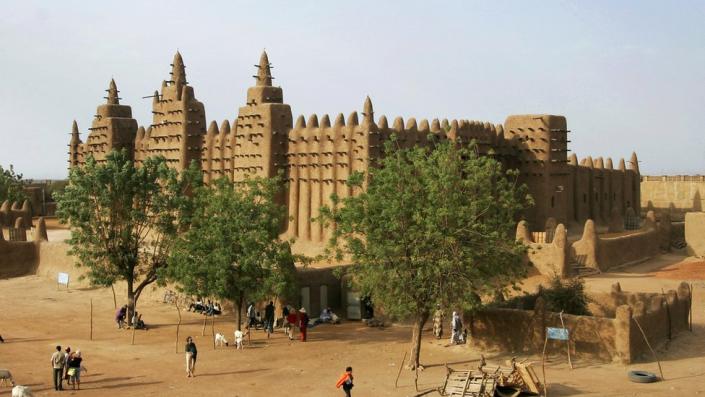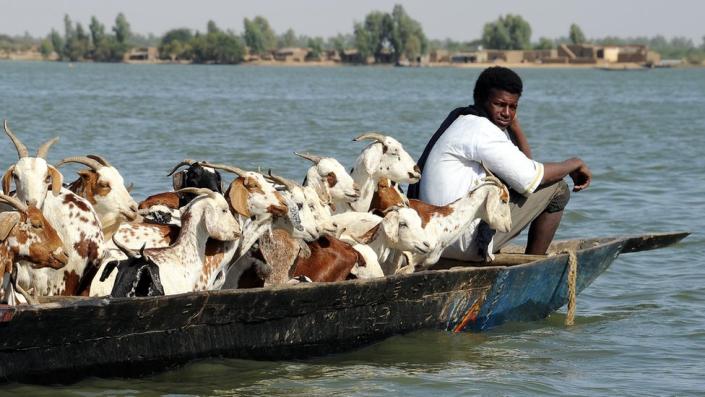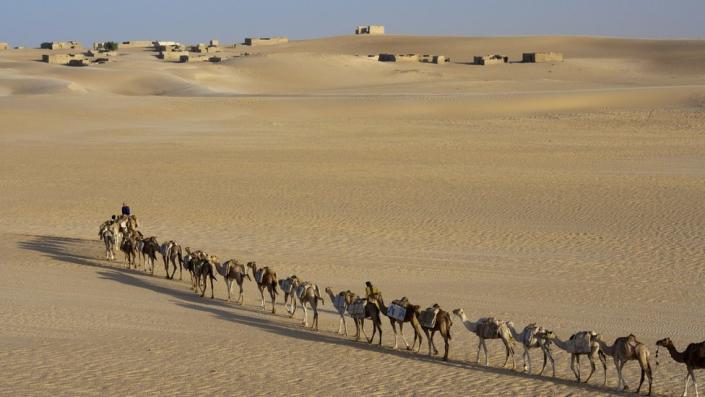Once home to several pre-colonial empires, the landlocked, arid West African country of Mali is one of the largest on the continent. For centuries, its northern city of Timbuktu was a key regional trading post and centre of Islamic culture.
After independence from France in 1960, Mali suffered droughts, rebellions, and 23 years of military dictatorship until democratic elections in 1992.
In 2013, France intervened militarily at the government’s request, but a jihadist insurgency in the north and central regions has since gathered pace.
Mali is renowned worldwide for having produced some of the stars of African music, most notably Salif Keita.
-
Capital: Bamako
-
Area: 1,240,192 sq km
-
Population: 21.4 million
-
Languages: French, plus Bambara, Dogon, Fulfulde, Manding, Arabic, Tuareg
-
Life expectancy: 57 years (men) 59 years (women)
Interim head of state: Assimi Goïta

The military council that seized power in August 2020 is led by Colonel Assimi Goïta.
At first he put an interim president and prime minister in place, but ousted them in May 2021 in a dispute over their attempt to replace two Goïta allies in the cabinet.
West African leaders have expressed concern over the lack of opposition and civilian representation in the planned transition to elections.
Mali is struggling with a jihadist insurgency that has made much of the north and east ungovernable.

Mali’s jihadist insurgency and the military-led government have degraded media freedoms.
Militant groups threaten journalists and target media outlets. Pro-junta groups have demanded “patriotic journalism”, leading to self-censorship.
Radio is the leading medium. There are hundreds of stations, run by the state as well as by private operators.

Some key dates in Mali’s history:
c. 300AD-1200s – Much of the region is part of the Ghana Empire, one of several major West African empires controlling trans-Saharan trade in gold, salt, other precious commodities – and slaves.
c. 632-700s – Arab invasion of North Africa and subsequent spread of Islam.
c.1226-1670 – Mali Empire becomes dominant force in the upper Niger basin following the Battle of Krina in 1234.
c. 1464-1591 – as the Mali Empire loses some of its power, losing its dominance of the gold trade, the Songhai Empire gradually gains control over the eastern half of the Mali Empire.
1591 – The Battle of Tondibi. Songhai forces decisively defeated by the army of the Saadi dynasty in Morocco, who make Timbuktu their capital.
The fall of the Songhai Empire marks the end of the region’s role as a trading crossroads. Area splinters into smaller kingdoms.
1898 – France completes conquest of Mali, then called French Sudan.
1958 – French Sudan, which changes its name to the Sudanese Republic, becomes an autonomous republic within the French Community.
1959 – Mali and Senegal unite to become the Mali Federation.
1960 – Mali Federation gains independence from France. Senegal swiftly withdraws from the federation, allowing the Sudanese Republic to become the independent Republic of Mali, with Modibo Keïta as president. It becomes a one-party, socialist state.
1968 – Following economic decline, Keïta is overthrown in a coup led by Moussa Traoré, who sets up a military-led regime and represses political opposition and protests.
1980s – Some limited political liberalization.
1991 – March revolution; President Traoré arrested. Opposition parties are legalized and a constitution is approved.
2012 – Tuareg rebellion in northern Mali, led by the National Movement for the Liberation of Azawad (MNLA).
Coup, after which Islamist groups including Ansar Dine and Al-Qaeda in the Islamic Maghreb (AQIM), who had helped the MNLA defeat the government, turn on the Tuareg and capture several towns.
France intervenes militarily and recaptures key towns.
2015 onwards – Conflict in central Mali between agriculturalists like the Dogon and the Bambara, and pastoralists like the Fula (or Fulani) over access to land and water. These factors which have been exacerbated by climate change as the Fula move into new areas.
2020 – Malian army led by Colonel Assimi Goïta and Colonel-Major Ismaël Wagué oust President Ibrahim Boubacar Keïta in a coup. A political transition to civilian rule is agreed.
2021 – Tensions between civilian politicians and the military in the interim administration lead to another coup, led by Assimi Goïta. Neighbouring states impose sanctions
2022 – France withdraws its troops from Mali. Mali’s government strengthens its links with Moscow, with mercenaries from the Wagner group deployed in the country.









